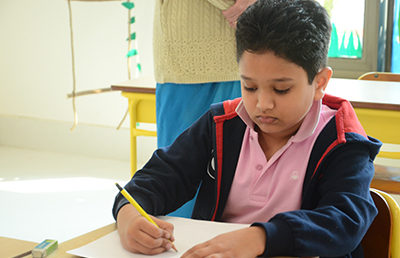We all lose our cool from time to time, and these moments bring out reactions that are in complete contrast to our usual temperament and behaviour. Our children are not immune to this emotion either. In fact, outbursts and tantrums are more pronounced and frequent in young kids as they are easily overwhelmed and lack the cognitive and emotional stability required to process this sense of distress.
Even though anger is a natural emotion, it is imperative to teach children to regulate, process, and channelise it the right way, lest they develop destructive tendencies.
Here are a few anger management tips that might help:
Recognise the cause
In children, anger, more often than not, is a way of communicating emotions they haven’t yet learned to express in words. Child psychologists also believe that anger can stem from a child’s idea of something that seems unfair since young minds often have a strong sense of justice. In addition to this, a child may throw a hissy fit if they feel they are not being heard or paid attention to.
In other cases, the reasons can be fairly simple – hunger, exhaustion, or being overstimulated by their environment. Identifying the underlying cause can play a big role in mitigating anger issues.
Avoid the triggers
Once you’ve identified the causes behind these anger outbursts, you can successfully minimise them by avoiding the obvious triggers. If a particular situation or place gets your child all riled up, it is best to navigate your way around it. You can, of course, revisit these settings at a later point in time to see if your child is better equipped to handle them.
For instance, if the classroom environment triggers a meltdown, you can consider looking for CBSE-affiliated schools in Gurgaon, that allow students to spend time in activity rooms or libraries until they have calmed down. Creating a similar safe environment at home that they can retreat to, be it the kid’s room or a designated play area, also helps.
Dealing with angry outbursts
We concede that it is a lot easier said than done, but it is imperative that parents stay calm and composed when the child is having an outburst. At the same time, do not try to placate them by giving in to their demands. By doing so, you are only validating anger as a tool to have their way.
Instead, take them to their ‘safe’ environment and let the outburst run its course. If your child doesn’t want to be left alone, sit with them and help them practice some deep breathing.
The role of the school
With aggression and bullying taking on menacing proportions in school environments, it is important to factor in the role of the school in helping with anger management. Children with anger issues often have a tough time at school. They are labelled ‘difficult’ by teachers and have trouble forging friendships.
For such children, parents must seek out CBSE schools in Gurgaon that have a well-structured policy on anger management. As admissions open up in Gurgaon schools, talk to the authorities to assess how they approach students with anger issues. Is there a counsellor available? Do they have a safe space the child can retreat to if needed? Are the teachers equipped to handle outbursts while in class?
The bottom line
Anger and accompanying outbursts in kids is something every parent has to grapple with at some point or the other. As long as this behaviour does not pose any danger to the child’s safety or that of those around them, affect their learning and socialising abilities, or trigger anxiety, it can be handled at home.
Finding the right CBSE school in Gurgaon can make dealing with the situation even easier. However, if you find the situation spiralling out of control, don’t hesitate to seek professional help.




